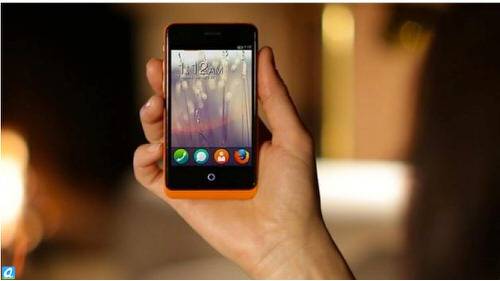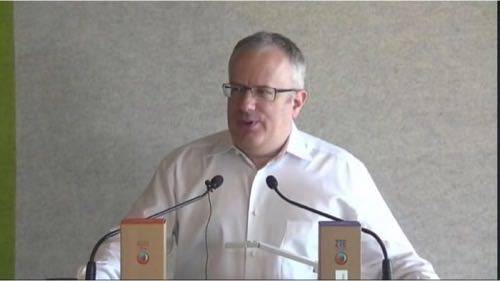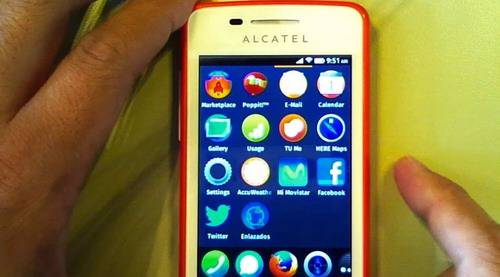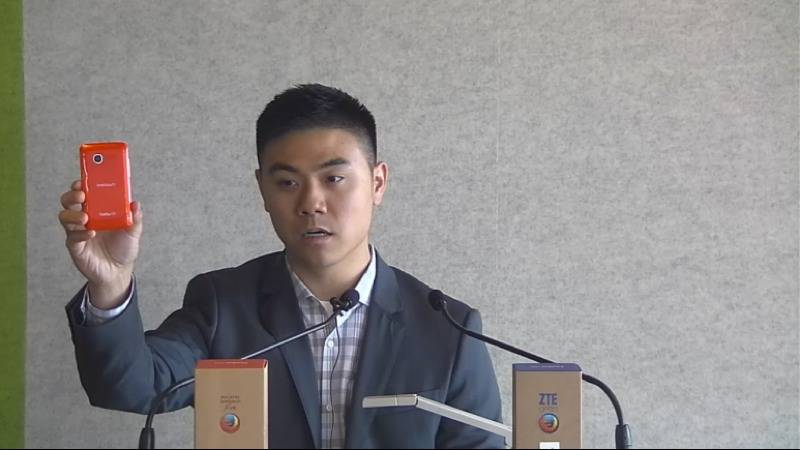
Firefox maker Mozilla once helped break up a stagnant monopoly on the Internet. Now it’s trying to do the same sort of thing again.
Today, the organization announced the first smartphones running its new Firefox OS, which will first ship to countries like Poland and Spain before making their way across the world. Mozilla calls these Firefox OS smartphones “open Web devices,” and wants them usher in a new way of developing for mobile devices that embraces open Web standards instead of closed, proprietary approaches.
In other words, Mozilla aims to undermine the proprietary Apple-Google duopoly of iPhone and Android by giving manufacturers, developers and consumers another choice that’s tied directly to the technologies that underpin the Web itself.

And it thinks it has an army of developers to enlist in its cause.
What’s An “Open Web Device”?
Despite some visual similarities, Firefox OS is not like Apple’s iOS or Google’s Android, much less like BlackBerry or Microsoft’s Windows Phone. These are platforms that run on operating systems built with “native” code specific to that platform. They all feature browsers that handle quite a bit of a smartphone’s basic functions, but they still live in proprietary ecosystems. As such, they’re all vying for developer attention to their platforms, with varying degrees of success.
From Mozilla’s perspective, the Web is the operating system. If you can write code to design and build a website, you can write code to design and build an app for Firefox OS. Mozilla chief technology officer Brendan Eich says the organization estimates that here are nearly eight million Web developers in the world. The number of developers for all proprietary operating systems, he says, are “an order of magnitude or two less, in the hundreds of thousands.”
“There was no reason that the Web couldn’t be a first class platform for mobile apps,” Eich said today at a press conference in San Francisco announcing the two new Firefox OS smartphones.
The Secret Is That There Is No Secret
Mozilla sees the current smartphone duopoly—Android and iOS—much the same way that it viewed the monopoly Internet Explorer held over Web browsing in the late 1990s. Eich was instrumental in breaking up that monopoly. This is, after all, the guy who invented the Javascript coding language (which runs much of the functions on the Web) and helped build the Netscape browser—you remember, the one that threw such a scare into Microsoft that it overreacted and brought down major antitrust enforcement on itself.

So Eich knows a little bit about breaking down walled gardens. And he does it with open, non-proprietary standards and the Web.
Nothing about Firefox OS is secret. Mozilla has been extremely open about the whole development process for the two years that it has taken to build the operating system, a project that started as a set of code called “Boot2Gecko” and eventually turned into a smartphone.
With Firefox OS, Mozilla doesn’t play cloak-and-dagger games about what features are coming to the operating system or when new smartphones will launch the way mobile giants like Apple and Samsung do. Using HTML5, Firefox OS is built on open application programming interfaces (APIs) intended to be shared with the world. If that means that portions of Firefox OS end up in iOS, Android, BlackBerry, Windows Phone or even upstarts like Tizen or Jolla, so be it.
Given a world in which “when is the new iPhone coming?” is a very, very popular search term, Mozilla’s openness with Firefox OS is extraordinarily refreshing. Yet Mozilla doesn’t hold any illusions that it can unseat the likes of Apple and Google when it comes to smartphones. Instead, Eich and company want to create opportunity for developers, smartphone manufacturers and carriers and, ultimately, consumers.

The Gift Of Openness
“What we aspire to is giving them the open-endedness of the Web,” Eich said. “I am staking my reputation, as I have, on open standards and continue to do so.”
Mozilla is launching Firefox OS with 20 mobile carriers who will launch its smartphones across the world. Telefonica, a Spanish telecom that operates in Spain, Latin America and Asia, plans on bringing Firefox OS devices to its entire coverage area by the end of 2014. These devices, which will be extraordinarily cheap by today’s smartphone standards, are intended to get first-time smartphone users (or even first time Web users) on the Internet.
Mozilla isn’t going to measure success of Firefox OS with numbers of smartphones shipped. Making money is not what Mozilla has, or has even been, about.
“We want to pioneer the category of open web devices and show that it is competitive,” Eich said.

















